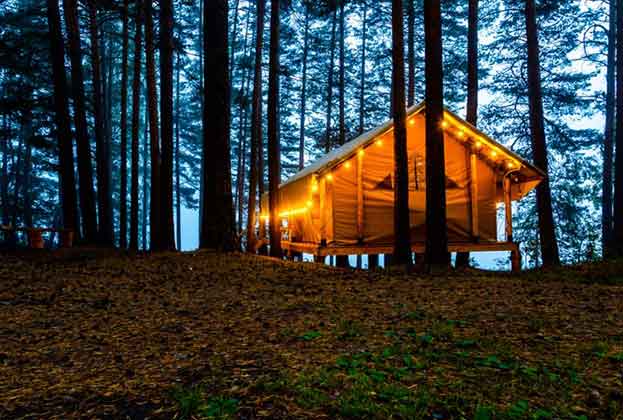When considering any form of farm-based diversification project it is imperative to understand what potential customers expect and indeed value as well as taking into account emerging global trends that have an impact on consumer behavior.
Savills recently published Spotlight: Farm Diversification highlights how the current dominant mega trends of wellness, the environment and sustainable living and 'experience over possessions' can work in a rural environment.
Wellness and healthy living
There is a growing global interest in wellness and healthy living and farms are perfectly placed to provide a range of activities that promote wellness.
The Global Wellness Institute estimates that wellness tourism is a £500 billion global market and is growing twice as fast as other types of tourism. The forecast is for continued growth in this area and, importantly, these tourists are typically high-spending, high-yield individuals.
In addition to wellness tourism, the idea of social prescribing is gaining the attention of the medical profession with doctors prescribing time getting back to nature in the countryside to their patients.
Environment and sustainable living
In recent years, the level of interest in sustainable living has rocketed and this is seen as a growth area, with many farm businesses already setting up sustainable diversification projects. A recent survey by Booking.com found that 86 per cent of respondents would be willing to spend time doing activities that counterbalance the environmental impact of their stay.
Equally, increased public awareness of the problems associated with food waste, climate change and the need to reduce carbon footprints presents an opportunity for farm businesses to create environmentally friendly diversification projects. Farms should consider the link between the farm’s natural environment – landscape, biodiversity, soils, water and trees (natural capital assets) – and potential projects.
Experience over possessions
Increasingly, consumers are drawn to experiences rather than material goods. According to Mintel research, 65 per cent of adults say they would rather spend money on experiences than on possessions and this increases to 72 per cent with millennials (those born between 1977 and 1994).
In the tourism sector visitors are demanding authentic experiences in a stunning setting or embedded within a community or place. These can include butchery workshops, guided nature walks, cheese-making or simply collecting eggs for breakfast.
Farms and estates are well placed to take advantage of these growing trends but it is important to let visitors know how sustainable it is. For example, if your accommodation runs off clean energy, then say so. And remember the customer should be at the heart of every business decision when considering a farm-based diversification.
Further information
Read more: Spotlight: Farm Diversification

.jpg)

.jpg)
.jpg)
.jpg)




